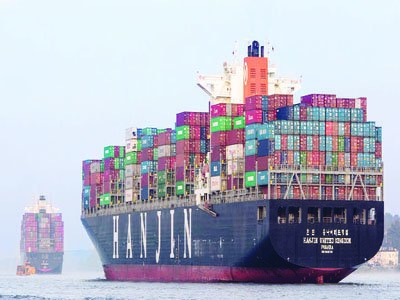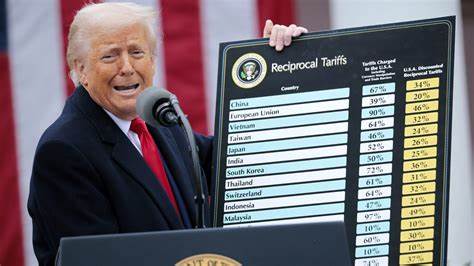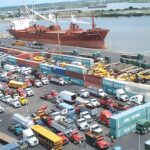Members of the House of Representatives on Tuesday sounded the alarm that Nigeria is losing a staggering $7billion annually to inefficiencies and poor management of the country’s seaports.
Reps Julius Ihonvbare and Ibrahim Isiaka, in a joint motion at the resumption of plenary, stated that Nigeria’s seaports receive barely 10 per cent of West African imports out of 60 per cent they are meant to receive, while others are lost to neigbouring countries.
Join our WhatsApp ChannelThe two lawmakers harped on the need for the House of Representatives to carry out a thorough investigation to unravel the gaps and opportunities lost by the country annually.
The House therefore resolved to mandate its Committees on Port and Harbours, National Planning and Economic Development, Maritime Safety Education and Administration and Nigerian Shippers’ Council to investigate the gaps affecting the full realisation of the economic advantage of Ports and Harbours and other Blue Economy in Nigeria.
Presenting the motion, Ihonvbare highlighted the importance of the maritime sector to Nigerian economy’s survival, but lamented the under-utilisation of the seaports which can increase national revenue and the Gross Domestic Product (GDP).
His words, “Nigeria’s seaports receive barely 10 per cent of West African imports out of 60 per cent destined for Nigeria, a significant economic loss due to poor management and inefficiencies, estimated to cost $7 billion annually.
“Most ships bringing goods to Nigeria prefer to go to other ports order than Nigerian ports. Indeed the Benin Republic benefits from Nigeria’s large market, while Cotonou remains a popular importer’s haven.
“Huge trade cargoes are lost to Togo and other neighbouring countries from where they are offloaded and transshipped to Nigeria due to Poor shipping connectivity and shallow drafts of the port channels which lead to trade cargo losses, estimated to be N250 billion in 2016 alone.”
He expressed concern over Nigeria’s inability to provide adequate infrastructure and reduce pressure on Lagos ports and why the Calabar, Port Harcourt, Warri, and Koko ports cannot be developed as a haven for importers in the region.
According to him, the lack of adequate infrastructure and capacity in the growing cargo and maritime business is a significant issue.
The lawmaker pointed out that Nigeria’s Apapa Port lost West Africa’s leading position due to congestion and poor quality services to shippers.
“Port of Lomé, with a capacity of 1.1 million twenty-foot containers, overtook Lagos Port due to modernization reforms which tripled its capacity from 311,500 containers to 3.1 million, thus, making ‘Togo’s Port of Lomé becoming a regional transit hub.
“Nigeria’s Apapa Port, Lagos, which handles about 1 million TEU annually, lost 30 per cent of its container traffic over five years due to several factors bedevilling its inability to deliver efficient services to cargo owners; this explains why Nigerian ports have remained inefficient over the years.
“Nigeria’s major seaports in Lagos do not have deep draughts to handle bigger vessels, while modern seaports in Port of Lomé have a depth of 16.60 meters and capacity to accommodate third generation ships, Apapa port operates with a 13,5 meters draught that can only allow vessels with about 4,000 TEUs of containers to call the port,” he said.


















Follow Us